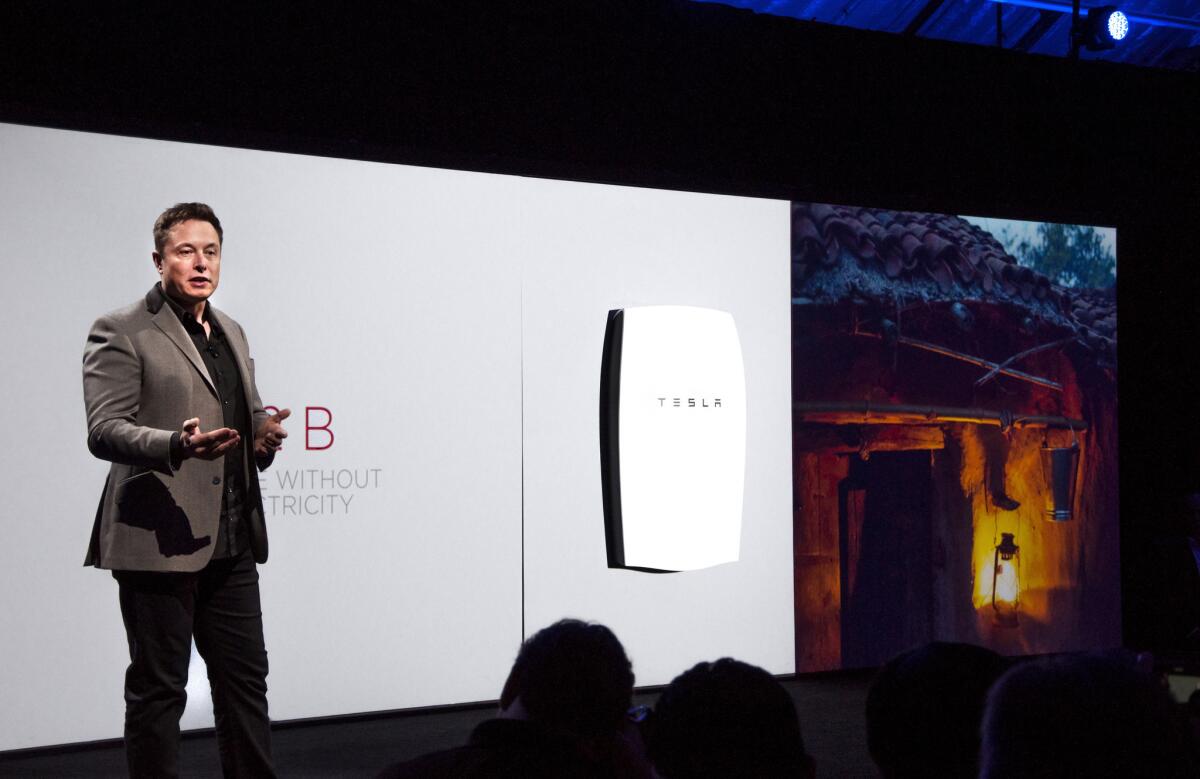Tesla focuses on smaller, daily-use batteries for homes

When it comes to batteries, homeowners apparently don’t need as much energy storage as Tesla Motors thought they did.
Tesla Motors says it will concentrate only on developing its 7-kilowatt-hour Daily Powerwall battery, which is intended for everyday use but also has backup power capabilities.
Last April, the Palo Alto-based company announced that it would produce two batteries: the $3,500 Tesla Powerwall, intended to store 10 kilowatt-hours of backup power, and the smaller, $3,000 Daily Powerwall battery.
The batteries make the most sense for homeowners with solar panels, since excess energy generated by their systems can be stored for use during the night or on cloudy days. That backup power option would allow connected appliances, lights or computers to run during outages.
But the need for more storage is less obvious. Under so-called “net energy metering” policies, rooftop solar owners can sell power they don’t use back to the utility companies.
See more of our top stories on Facebook >>
Tesla said it never produced the 10 kilowatt-hour batteries.
“We have seen enormous interest in the Daily Powerwall worldwide,” Tesla said in a recent statement. “Due to the interest, we have decided to focus entirely on building and deploying the seven kilowatt-hour Daily Powerwall at this time.”
The news was first reported by Greentech Media.
The move toward batteries for daily use, especially this early in the production process, is a good one, said Cosmin Laslau, senior analyst at research firm Lux Research.
He said backup power is not a great value proposition in a well-established grid system, where power outages happen infrequently and briefly.
“I think that one of the original hypotheses was that we could sell batteries just for backup, and Tesla probably gave it a better shot than anybody out there,” Laslau said. “And the market responded with, ‘It’s not good enough to look at backup alone.’”
SIGN UP for the free California Inc. business newsletter >>
He said Tesla will likely integrate increased backup capabilities into a revised version of the battery that the company plans to launch later this year.
Already, several big businesses and utility companies are buying battery storage. In April, Tesla said it was conducting test programs with retail giants like Wal-Mart Stores Inc., Target Corp., and Amazon.com Inc.
For more business news, follow @smasunaga.
ALSO
Now standard in the Tesla Model X: A bioweapon shield
Elon Musk’s wife, Talulah Riley, files for divorce for second time
Tesla quality problems could signal challenges with Model X and Model 3
More to Read
Inside the business of entertainment
The Wide Shot brings you news, analysis and insights on everything from streaming wars to production — and what it all means for the future.
You may occasionally receive promotional content from the Los Angeles Times.











